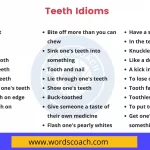Compound nouns for beginners
Ever wondered how a “toothbrush” became more than just a brush for teeth? Or how a “firefly” captured the essence of a flying light? Welcome to the magical world of compound nouns, where words join forces to create something entirely new!
What are Compound Nouns?
Imagine two words, holding hands and skipping into the dictionary. That’s basically what a compound noun is! It’s a noun formed by combining two or more smaller words into one powerful unit. Think of it like a superpower – these mini-words merge to create a single, stronger noun with a specific meaning.
Types of Compound Nouns:
- Open: These words stay separate, like “ice cream” or “dining table.”
- Hyphenated: A hyphen holds them together, like “mother-in-law” or “well-being.”
- Closed: They become one word, like “sunlight” or “bedroom.”
Why are Compound Nouns Important?
Compound nouns are like linguistic shortcuts. They help us express complex ideas in fewer words, making our language more efficient and precise. They also add variety and richness to our speech and writing.
Let’s Explore Some Examples:
- Noun + Noun: “Classroom” (class + room), “toothpaste” (tooth + paste), “raincoat” (rain + coat)
- Verb + Noun: “Haircut” (to cut + hair), “playground” (to play + ground), “sunburn” (sun + burn)
- Adjective + Noun: “Highchair” (high + chair), “bluebird” (blue + bird), “hotdog” (hot + dog)
Here are 60+ compound nouns with the format Noun + Noun:
| Compound Noun | Noun | Noun |
|---|---|---|
| Doghouse | Dog | House |
| Toothbrush | Tooth | Brush |
| Bedroom | Bed | Room |
| Blackboard | Black | Board |
| Doorbell | Door | Bell |
| Hairbrush | Hair | Brush |
| Football | Foot | Ball |
| Fireman | Fire | Man |
| Raincoat | Rain | Coat |
| Earring | Ear | Ring |
| Armchair | Arm | Chair |
| Newspaper | News | Paper |
| Moonlight | Moon | Light |
| Baby-sitter | Baby | Sitter |
| Butterfly | Butter | Fly |
| Airport | Air | Port |
| Classroom | Class | Room |
| Bookshelf | Book | Shelf |
| Homework | Home | Work |
| Backpack | Back | Pack |
| Toothpaste | Tooth | Paste |
| Cupboard | Cup | Board |
| Haircut | Hair | Cut |
| Snowman | Snow | Man |
| Eyeglasses | Eye | Glasses |
| Pancake | Pan | Cake |
| Snowball | Snow | Ball |
| Waterfall | Water | Fall |
| Treehouse | Tree | House |
| Teaspoon | Tea | Spoon |
| Sunglasses | Sun | Glasses |
| Raindrop | Rain | Drop |
| Rainbow | Rain | Bow |
| Lipstick | Lip | Stick |
| Snowflake | Snow | Flake |
| Sunflower | Sun | Flower |
| Sunlight | Sun | Light |
| Fishbowl | Fish | Bowl |
| Sailboat | Sail | Boat |
| Playroom | Play | Room |
| Playpen | Play | Pen |
| Playground | Play | Ground |
| Wheelchair | Wheel | Chair |
| Rainstorm | Rain | Storm |
| Skyscraper | Sky | Scraper |
| Jellyfish | Jelly | Fish |
| Cupcake | Cup | Cake |
| Windmill | Wind | Mill |
| Basketball | Basket | Ball |
| Firefly | Fire | Fly |
| Bathtub | Bath | Tub |
| Moonshine | Moon | Shine |
| Headlight | Head | Light |
| Headache | Head | Ache |
| Applejack | Apple | Jack |
| Lifesaver | Life | Saver |
| Rainforest | Rain | Forest |
| Toothpick | Tooth | Pick |
| Sunburn | Sun | Burn |
| Eyelash | Eye | Lash |
| Wheelchair | Wheel | Chair |
These compound nouns can help beginners understand how nouns can be combined to form new words with specific meanings.





